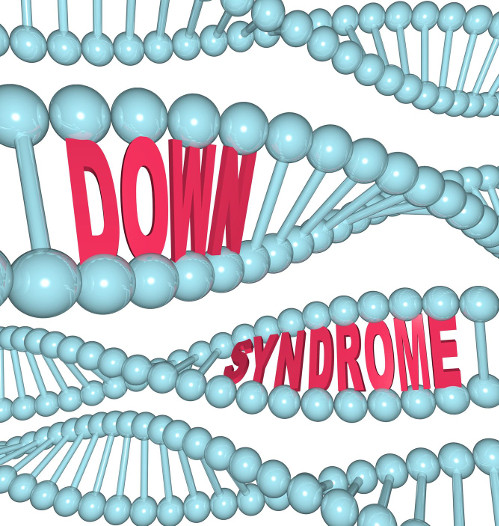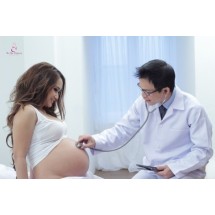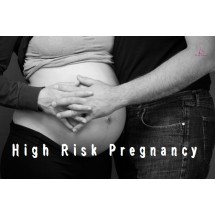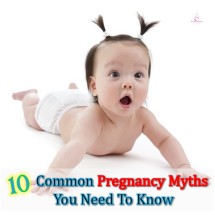
About 1 in 1000 babies are born with Down Syndrome, a congenital condition due to an extra chromosome that happened at conception, when the egg and sperm fuse. There are normally 23 pairs of chromosomes but a person with Down Syndrome has an extra chromosome number 21. The risks of having a baby with Down Syndrome increases with age (for instance about 1 in 200 babies for women above 38 years old) and if a baby has been born with Down Syndrome.
Type of Tests
These are different tests available in the first and second trimesters of the pregnancy, categorized into:
Screening tests – Offered to all women, no risk of miscarriage from the test procedure and non-conclusive – the test indicates if there is a higher chance of Down’s syndrome.
These screening tests are to analyze various proteins that are produced by the fetus and the placenta, which can be detected via a blood test. The test results are then classified as either low or high risk with a cut-off risk of 1 in 250 to decide whether to recommend diagnostic tests which carry risk of miscarriage (but are more accurate).
The screening tests are to be taken from 11 to 20 weeks of pregnancy, as this period allows time for intervention, if needed, before the pregnancy is more advanced. From 15 to 20 weeks is a time period shown to produce more accurate test results. The screening tests are to test for the amount of various proteins below:
Human chorionic gonadotrophin (hCG) – High hCG is associated with Down Syndrome.
Pregnancy-associated plasma protein (PAPP-A) – Low PAPP-A is indicative of poor fetal growth.
AFP (alpha fetoprotein) – Low AFP is associated with a higher risk of Down Syndrome, as babies with Down Syndrome produce less AFP and thus less is transferred to the mother. If the test show a high AFP, it is a higher risk of another condition, the open spina bifida, a defect of the backbone.
The tests that are carried out from the 20 weeks of pregnancy are known as the quadruple test, which analyzes four different proteins in the blood – 1. hCG; 2. uE3 (oestriol); 3.AFP and 4. inhibin A.
* * * * *
 Nuchal translucency (NT) test – The NT test may be done at the same time as the
Nuchal translucency (NT) test – The NT test may be done at the same time as the
early dating scan and is carried out in the same way. It measures the fluid collection/ fold under the skin at the back of the baby’s neck. All babies have a collection of fluid there but babies with Down Syndrome tend to have more fluid in this area. The NT test result is analyzed together with the screening tests to assess the likelihood of Down Syndrome.
The mother’s age, weight and medical history are also taken into consideration when analyzing the results. Results are usually available within 3 days of the test.
* * * * *
Cell-free fetal DNA test – This checks for fetal DNA circulating in the mother’s blood, which is recommended for women with higher risk and conducted after 10 weeks of pregnancy.
* * * * *
Diagnostic tests – As the initial screening tests are non-conclusive, a higher chance of the baby having Down Syndrome may not turn out to be accurate. There is therefore a threshold of higher likelihood (of 1 in 150 chance and above) that the doctor will decide to advise the mother to take the diagnostic test. The diagnostic tests carry a risk of miscarriage but are conclusive.
Amniocentesis is a diagnostic test that involves collecting a sample of the amniotic fluid that surrounds the baby in the womb. Prior to the collection of the fluid, an ultrasound scan is conducted to assess where the fine needle should be inserted through the abdomen. During the process, the abdomen skin is first cleaned with an antiseptic, followed by inserting the needle to the fluid. The baby cells in the amniotic fluids will then be analyzed in the laboratory and if the result is negative, it will rule out Down Syndrome. Unfortunately, it has been estimated that about 1 in 100 to 300 women who have had an amniocentesis will have miscarriage.
Amniocentesis is usually conducted between 15 to 18 weeks of pregnancy as it is shown to be safest during this period.
Chorionic villus sampling is a diagnostic test where a very small sample of the placenta called the chorionic villi is taken, via the insertion of a fine needle through the abdomen skin into the uterus. The cells of the chorionic villi contain the same DNA as the baby and these cells are analyzed in the laboratory. Similar to amniocentesis, there is a risk of miscarriage of about 1 to 2 in every 100 women.
CVS is usually conducted in the first trimester, after 10 weeks of pregnancy and slightly higher risk than amniocentesis.
* * * * *
Cordocentesis is also known as percutaneous umbilical blood sampling or PUBS, where fetal blood is taken from the umbilical cord and examined for chromosomal defects. This test is conducted between 18 and 22 weeks of pregnancy and offered only when other test results are inconclusive as it carries a higher risk of miscarriage than CVS and amniocentesis.
The laboratory results can take from a few days to two weeks, depending on the type of tests on the chromosomes. The polymerase chain reaction (PCR) test is faster while a full karyotype test takes longer time.
* * * * *

Considerations for Down Syndrome Screening
Screening for Down Syndrome is offered by doctors but the decision on whether to go for the screening is a personal choice. The considerations include
(i) risks of an invasive diagnostic test,
(ii) whether you want to know if the baby has Down Syndrome and
(iii) whether you would want to take any action if you learn of the Down Syndrome risk during pregnancy.
If the results of the tests indicate a chromosomal abnormality, the doctor will discuss in detail with the couple on the options going forward. Some couples may decide to continue with the pregnancy and start getting ready the special care required for the baby with Down Syndrome, or proceed with the pregnancy but make arrangements for the baby to be adopted, or end the pregnancy.
Caring for a Child with Down Syndrome
Down Syndrome affects a child in many ways, as the extra chromosome affects all the body cells. Some impacts on the child include:
Physical – Characteristic facial appearance, approximately 50% chance of congenital heart disease, vision and growth problems. Also increased risk of leukemia, infectious disease, dementia, sleep apnea, obesity, skin, gastrointestinal, thyroid, skeletal and hearing problems. Developmental milestones are reached slower than other children. Life expectancy is lower, to about 60.
Mental – Learning difficulties, that can range from mild to severe.
It is not possible to know beforehand how severe the Down Syndrome will affect the baby and how much additional care the child requires or his/her quality of life. However, despite many challenges of caring for a child with Down Syndrome, many families lead fulfilling lives. There are communities and regulations to support those with Down Syndrome and it is possible for them to contribute positively to the society.
By Mei






